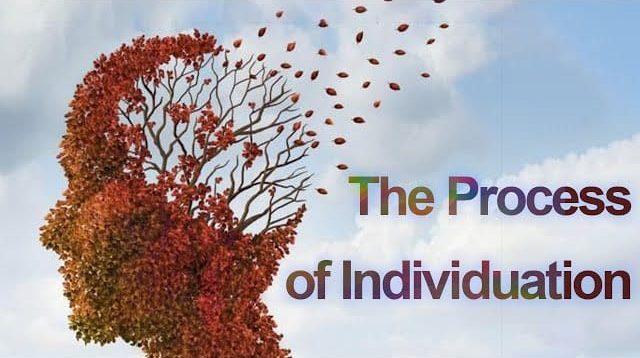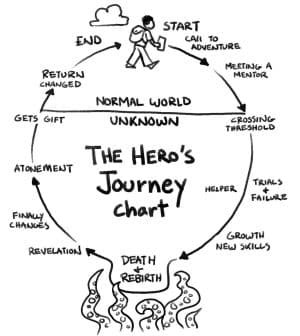
A well-known pastor and author from Texas tells a fictional story in one of his books of a bunch of candles that were in a storage closet. One night, there was an electrical storm, and the electricity in the house went out.
So the husband went to the candles to get them to provide light during the darkness, but the candles—which could talk—all had excuses for why they couldn’t leave the closet, or why they couldn’t give off light.
One said that it needed more preparation. He didn’t want to make mistakes when he finally was sent to light a room, and so it was studying to be the best candle it could be. He said he was in a great study on wind resistance, had just listened to a series on wick build-up and conservation and was getting ready to read a best-selling book on flame display called Waxing Eloquently.
The second candle claimed to be busy meditating. He said that he was meditating on the importance of light and that he couldn’t be disturbed because it was so … enlightening.
A third claimed that he wasn’t stable enough and had to get his life together before he tried to light any rooms. He said his main problem was that he had a short temper and people thought he was a hothead.
The fourth candle was a female, and said that while she would like to help, lighting the darkness wasn’t really her gift. She was a singer, and her responsibility was to encourage the other candles so they would go out and light the darkness. To reveal her gift, she immediately launched into a beautiful rendition of “This little light of mine.”
All the other candles began to sing as well, and nothing the owner could do would make them stop.
When the husband asked his wife where she had picked up the candles, she said, “Oh, they’re church candles. Remember the church that closed down across town? I bought them there.”[1]
Candles that won’t shine. Tragic. I wonder if that is how God sometimes views us.
We should be like the advertisements on the radio for a certain hotel chain telling us that they’ll leave a light on for us.
Christians are supposed to be like that. Always allowing our light to shine—to be seen by those in darkness. To provide light for those in the storm. To be a lighthouse for those who need to see the way safely to shore.
But too often we cover our lights, or let them burn out, or simply refuse to be light.
 More tragically still, rather than contribute to the light, rather than showing people the way to God, we sometimes join in the deeds of darkness.
More tragically still, rather than contribute to the light, rather than showing people the way to God, we sometimes join in the deeds of darkness.
We tend to pick and choose when we want our light to shine and when we don’t. We want it to shine at church, but not at work. We want it to shine in the Bible study, but not at the neighborhood picnic. We want it to shine when we sing along to the radio in our car, but not when somebody cuts us off while we are driving.
But imagine for a moment, what would happen in other areas of our lives if we decided that sometimes we wanted the light to shine and other times not. Imagine what would happen on the highways if sometimes people drove at night with their lights on, and other times they didn’t.
Imagine what would happen if the runway manager at an airport decided to turn the runway lights off for a few hours every night when planes were trying to land.
Imagine how hard it would be to get around your house, if some rooms were lit, but others were not.
If we lived these ways, our lives would be full of terrible disasters. But that is how some of us live our Christian lives. That is how some of us treat the light of the truth that we are each responsible for.
We think we can turn it on and off and not suffer the consequences, but we are wrong. Anytime a light is supposed to be shining but is not, disaster results.
Which is what Paul is going to tell us today in Ephesians 5. In this section of Ephesians, Paul is explaining how to imitate God our Father.
Previously, we saw that since God is love, we need to walk in love. Christ is the perfect picture of love, and the world is the perfect perversion of love. We need to love as Christ loves, not as the world loves. That was explained in Ephesians 5:1-6.
In Ephesians 5:7-14, Paul discusses the next characteristic of God we need to imitate. We are to imitate God by walking in the light.
Ephesians 5:7-14. Therefore do not be partakers with them. For you were once darkness, but now you are light in the Lord. Walk as children of light (for the fruit of the Spirit is in all goodness, righteousness, and truth), finding out what is acceptable to the Lord. And have no fellowship with the unfruitful works of darkness, but rather expose them. For it is shameful even to speak of those things which are done by them in secret. But all things that are exposed are made manifest by the light, for whatever makes manifest is light. Therefore He says: “Awake, you who sleep, Arise from the dead, And Christ will give you light.”

Let’s begin with Ephesians 5:7.
Walk in the Light (Ephesians 5:7-8)
Ephesians 5:7. Therefore do not be partakers with them.
Paul is again pointing us back to what he has just said. In Ephesians 5:1-6, he has talked about fornicators, unclean people, covetous men and those who deceive others with empty words.
We talked about these behaviors in the previous study of Ephesians 5:1-6.
And now, in transition, Paul tells us to not be partakers with them. In other words, do not share with them in their actions. Do not participate with them.
Some misunderstand such a verse to mean that we should not join with the world in anything they do. That we should not have non-Christians as business partners and that we should not hire non-Christians as employees, and that we should not be friends with non-Christians.
That is not true at all. Paul is not even thinking about avoiding all contact or connections with non-Christians. If we avoided all contact with non-Christians, we could never be a light to them. And in this passage, he is inviting us to be lights. He is saying that in regard the sinful ways of the world, don’t join with them; but do hang out with and be friends with non-believers so that you can be a light to them.
Be a friend to those in the world, but don’t befriend their sin.
The word here for partakers is the Greek word summetochoi, and it means to partner with or to be a companion with someone.
One of the reasons we should not partner with the world in its sin, is because as Christians we are already partners with Christ. Throughout Scripture, this word is used to describe Christians as partners with Christ. As Christians, we share in the responsibility and reward that is due Christ.
So if, as partners with Christ, we decide to partner with the world in its sinful behavior, we have betrayed our partnership with Christ.
Here in Ephesians 5:7, Paul calls us to avoid joining the world in its false forms of love, which we saw in Ephesians 5:1-6, and now in Ephesians 5:7-14, he calls us to not partner with the world in its deeds of darkness.

Look at Ephesians 5:8.
Ephesians 5:8. For you were once darkness, but now you are light in the Lord. Walk as children of light
Darkness is the way we once used to walk. Darkness is how to describe our lives before we were Christians. Futile. Empty. Devoid of meaning and significance. The people who live by their flesh alone are people who walk in darkness, in ignorance, without knowledge of the truth about themselves, about God, and about reality. They are enslaved to their passions and illusions.
In Ephesians 2, Paul describes it as a walk that was according to the course of this world, according to the prince of the power of the air. We conducted ourselves in the lusts of the flesh and of the mind.
But now you are light in the Lord. What a change has come upon us! What a glorious transformation!
Just as God said into the darkness, “Let there be light” so He has also brought light to the dark lives which we once lead.
And not only has His light shined upon our lives—for it shines upon all those who are still alive—but we have personally been transformed into light as well. The text says, you are light.
We once were darkness, but now we are light. Once we were sinners, now we are saints.
This transformation from darkness to light is critically important for properly and fully living the life we are meant to live. By becoming light, we awaken to the work that God is doing within us so that we shine with His light, as He Himself is light.
Paul does say, after all, that we are light in the Lord. We are light because He is light, and He is in us and we are in Him, shining our light to the world.
Therefore, at the end of Ephesians 5:8, we should walk as children of light. As children of God, we should walk in love as God is love—that is what we saw in Ephesians 5:1-6. Now, also since God is light, we should walk as children of light as we try to imitate God.
One thing I want say about light, which is very interesting, is that light by itself is not light. There is constant light streaming through the entire galaxy, but when you look into the night sky, you see only darkness. Why? Because light itself is invisible. Light only appears as light when it shines upon something that is dark. Light is only seen when it hits a planet, a moon, or other particles of mass the sky so that the light can illuminate what it interacts with. This is how light exposes the darkness.
What this means, therefore, is that if you want to be light, you have to shine it on something dark. It doesn’t do a whole lot of good as a follower of Jesus to be light in your church, or your family, or where everyone else is light also. For your light to truly shine before men, you must be where the darkness is. Only in this way will your light shine before men so that they can see your good works and so glorify God.

Having told us to walk in the light, Paul wants to shed some light on the subject, and so he tells us what light looks like in Ephesians 5:9-10.
The Appearance of Light (Ephesians 5:9-10)
Ephesians 5:9-10. (for the fruit of the Spirit is in all goodness, righteousness, and truth), finding out what is acceptable to the Lord.
If you have the NIV or the NAS translations of the Bible, your text reads, for the fruit of the light, but I said for the fruit of the Spirit. There is a textual variant here in the Greek. Some manuscripts say light while others say Spirit.
I personally think the original word here was Spirit, but it really doesn’t matter. In the end, the idea is the same.
Children of light live in such a way that it reveals goodness, righteousness and truth.
We all know what these words mean and I would even venture to say that we all know whether we are living according to these words or not. So nothing much needs to be said about them except that goodness and righteousness are the exact opposite of fornication, uncleanness and covetousness mentioned in Ephesians 5:3 and truth is the exact opposite of the deception mentioned in Ephesians 5:6.
These words are also further ways to describe the character of God who is light.
Together, the terms describe the fullness of God, the expressions of His light shining through us. Those who exhibit these virtues reveal an inner transformation that has its source in the divine light of God.
So, if we are going to live as children of light, we need to live like the God who is light. Since He lives in goodness, righteousness and truth, so must we.
According to Ephesians 5:10, this is what is acceptable to the Lord.
I want to talk about that phrase finding out in Ephesians 5:10 though. The word is dokimazo, and means “to examine closely. To discover.”
This is a call to seek wisdom and knowledge of God and ourselves. To know God and to know ourselves. To discerning the true will of the true God beyond the dark and deceptive laws and ideas of this world. This involves introspective contemplation and rejection of worldly attachments.
We are to find out what is acceptable to God by using the light He has provided and taking it into the shadows of our own life and the dark places of this world so that we might fight even more light.
Imagine that you love to explore caves in the hopes of discovering gold and jewels. What do you need? That’s right—light!
Imagine that you’re a scientist, and you want to examine something closely in a microscope—what do you need? That’s right—light!
Imagine you love art, and you go to an art gallery to look at the paintings, what is over each painting so that you can look at it better? That’s right—light!
Light is so important for nearly everything we do in life, and in every area, when you are seeking precious truths, you need light to find more truth, more precious stones, more change, more success in becoming who you really are.
A while back I was working in the basement of my house. At one point, because I was doing quite a bit of pounding on a certain wall, I must have broken the filament in the light bulb, because it went out.
Do you think I just went on working in the dark? No! I would have hammered my hand instead of the nail. I stopped what I was doing, and I went and got a new light bulb so I could see.
When Paul tells us here to find out what is acceptable to the Lord, he is telling us to use the light that we have to closely examine and search and discover. And where is it that we closely examine and search and discover God’s will? Yes, the Word of God as illuminated by the indwelling Holy Spirit.
Psalm 119:105 says that it is a lamp unto our feet and a light unto our path. And as we study and read and meditate upon the Word of God, the Holy Spirit illuminates our mind and our thoughts to understand and apply that light to our lives.
That is what Paul is telling us to do in Ephesians 5:10. Use the light that is from God, to study the light of the Word of God, and in so doing, we will discover what is acceptable to God, and when we do it, we too will become lights to the world.
Some Christians wonder why the light of Christianity seems to be dimming in this world. There is only one explanation. It is because we have stopped learning about the light of God’s Word and obeying it. Only those who study the light and obey the light will be light.

But let’s move on. If Ephesians 5:9-10 told us how to live as light, Ephesians 5:11-12 tell us how not to live. He tells us what darkness looks like.
The Appearance of Darkness (Ephesians 5:11-12)
Ephesians 5:11-12. And have no fellowship with the unfruitful works of darkness, but rather expose them. For it is shameful even to speak of those things which are done by them in secret.
Ephesians 5:11 tells us to have no fellowship with the unfruitful works of darkness, but rather expose them.
The word here for fellowship is similar to the word for partakers in Ephesians 5:8, so Paul is saying something similar here. Don’t partake with them in what they do, and don’t fellowship with them in what they do.
Again, this does not mean that we should not be friends with them or be around them, but rather that we should just not join them in what they do.
Paul describes what they do here as unfruitful works of darkness. This phrase is a complete contrast to the fruit mentioned in Ephesians 5:9. The works of darkness are not good, they are not righteous, and they are anything but truthful.
The fruitless deeds of darkness represent actions rooted in ignorance, materialism, and obedience to the false order of this world.
And then at the end of Ephesians 5:11, Paul tells us to expose them.
Now if this is where the passage stopped, it would be okay for us to get into all the nitty-gritty details of how sinful and depraved and wicked some men and women can be. We could talk for endless hours about the unrighteous acts of immorality which people are mired in. We could talk about the horrors and the inhuman acts some people are capable of performing.
If Ephesians 5:11 was by itself, that is what we would do. After all, how else can we expose these works of darkness other than by talking about them? Other than by informing one another about them?
But look again at Ephesians 5:12.
Ephesians 5:12. For it is shameful even to speak of those things which are done by them in secret.
So now we have a problem. We are supposed to expose these things, but we are not supposed to talk about them! It is shameful even to speak of those things which by them in secret.
How are we to expose them without speaking about them? Especially in today’s society when the motto seems to be, “Tell it like it is!”[2]
Does Paul realize what he is asking us to do here? Telling us to expose the darkness, but not talk about it is almost like saying, “Vacuum the room, but don’t use a vacuum cleaner” or “Paint this wall, but you can’t have paint.”
This is a problem, isn’t it?
Well, don’t worry. Paul knew what he was writing. He realized what he was saying. And besides that, he was inspired by the Holy Spirit to write this, and the Holy Spirit doesn’t contradict Himself (cf. Rom 16:19).

There is one way, and one way only, to expose the deeds of darkness without having to talk about them. Do you want to know what it is?
The Application of Light (Ephesians 5:13-14)
Ephesians 5:13 But all things that are exposed are made manifest by the light, for whatever makes manifest is light.
I don’t know about you, but manifest isn’t a word I use much, so to help me understand this verse, I like to substitute in the word “visible.”
But all things that are exposed are made [visible] by the light…
Do you want to expose some sort of sinful behavior? All you have to do is shine. If the room is dark, talking about the darkness and trying to explain the darkness won’t help anyone see in the darkness. It does no good to talk about the darkness and walk around in the darkness.
To expose the darkness, we don’t live in the darkness. Rather, we simply shine the light on it. When God’s divine light touches the ignorant, it brings light into their life, potentially turning them into light themselves.
Jesus says the obvious in John 12:35, but sometimes we need to be reminded of it. He says that “he who walks around in darkness does not know where he is going.” When was the last time you walked around in a dark room? By this, however, Jesus does not mean we should avoid walking in darkness altogether. What He means is that we should take our light into the darkness so that it is no longer dark!
There is a vast difference between walking in darkness with a light and walking in darkness without a light. God wants us to go to the darkness and bring a light with us.
If it’s a room that you have never seen before in the light, you stumble into things, you walk into walls, you trip over furniture. And that’s the way it is for Christians who try to expose the darkness of this world by living in the darkness.
I think I’ve mentioned him before, but I had a friend in college when I was at Montana State who wanted to reach his friends for Christ, but they went out and got drunk every weekend. So he thought that in order to understand them better and get them to trust him more, he too had to go out and get drunk with them.
It didn’t work … because that was walking in darkness, not revealing the light. You don’t have to become drunk in order to expose drunkenness. You don’t have to watch that certain kind of movies in order to have something to talk about with your co-workers.
These kinds of arguments are like saying that you have to become a homosexual or a prostitute in order to minister to them. Or that you have to become addicted to drugs to work with drug abusers!
No—you do not reveal the darkness by becoming darkness yourself. Darkness if revealed only when the lights come on. If the room is dark, turn the lights on!
How? How do you turn the lights on in this world? Through speaking the truth and living the truth. Paul says here in Ephesians 5:13 that whatever makes manifest or visible is light.
Some people get all caught up in the philosophical question of “What is truth?” They understand that in regard to some morals what is true in one part of the world may not be true in another, or how something is done in one place may be done completely different somewhere else.
And so they begin to think that truth is relative and that there are no absolute truths, which, by the way, is a contradictory statement.
But asking “What is truth?” is like asking “What is light?” Scientists can get all technical about the qualities, characteristics and behavior of light—you know how it behaves like particles and a wave, and how if you approach the speed of light, time slows down and on and on.
But do you notice what Paul says here at the end of Ephesians 5:13? He defines light in a way everybody can understand. He says, “Hey, light is what makes things visible.”
If you are a living light in this world, it will be super obvious to everybody around you because when you are around, they can see things more clearly. And you understand that I don’t mean that they can physically see things more clearly.
I mean that when you are around, it becomes obvious to others what is right and wrong. They start watching the words that come out of their mouths. They start controlling sinful behaviors. In other words, their deeds of darkness are exposed by the light of the truth that shines forth from your life.
You allow the Word of God to light your path. You allow the truth to fill your life. You walk in the light as He is in the light. You let your light so shine before men that they may see your good deeds and glorify your Father, who is in heaven.
Maybe some of you don’t really understand what I am talking about here. Maybe you have never personally seen the light of the truth shine forth from your life to expose the darkness in this world.
If that is true of you, then Ephesians 5:14 is for you.
Ephesians 5:14. Therefore He says: “Awake, you who sleep, Arise from the dead, And Christ will give you light.”
I’m glad none of you are sleeping through the sermon this morning, or I would have had to personalize this verse for you…Awake! You who sleep!
Paul seems to be quoting Scripture here, but no verse in Scripture says exactly this. There are a few verses which say something similar (Isa 26:19; 60:1), but it is not an exact quotation from anything we know of.
So, it seems most likely that what Paul is quoting from here is an early hymn sung by the first Christians—very likely at their baptism. Or, maybe it was something said to new Christians when they were baptized.
You know, today, we say before they go into the water something along the lines of, “Based on your testimony of faith in Jesus Christ for salvation, I now baptize you in the name of the Father, the Son and the Holy Spirit.”
Some scholars and historians though, seem to think that Paul is quoting here from something that was said to the believer as soon as they come up out of the water.
Baptism by immersion is a picture of death, burial and resurrection to new life in Christ. So when the believer came up out of the water, they would be told, Awake, you who sleep, Arise from the dead, And Christ will give you light.
Now that does not mean that automatically, just because someone is baptized, they will all of a sudden be a light to the world. No, baptism is just the first step in becoming a serious disciple of Jesus Christ.
And when Paul quotes this saying here, it would take every Christian back to the day when they were baptized. They would remember the resolutions they had made. They would remember the decision to change their lives and to live for Christ. They would remember that they had determined to walk the path of discipleship.
But some of them had gone back to sleep. Some of them became relationally dead again. Those who continued to sleep as Christians were carnal in the sense that they did not have a growing fellowship with God.
That’s not the way it should be. Baptism is the first step of an exciting adventure—not an opportunity to press the “snooze” button. Some people seem to get baptized and then say “Well, good. I got that out of the way. Now I’ll go back to living the way I lived before.”
No! Baptism is stepping out and saying “I want to be different. I want to show the world what God can do through me. I want to be used by Christ. I want to be light!”
Baptism is just that first step on the exciting life of being a disciple of Christ.
People are trapped in darkness and they don’t see a way out because there is no light to help them find a way. We are called to go into the darkness and shine our light into it so that we can bring more of life into light, and also wake up the sleepers and the dead who are there, so that they too can be delivered from darkness and start walking in the full light of God’s love and wisdom.
As Paul indicates at the end of verse 14, this is what Jesus first did for us. He came to this earth and was our light, showing us the way out of darkness, so that we too can be light to others. This spiritual awakening allows us to join with God in redeeming this earth and becoming who He truly wants us to be.
So Ephesians 5:7-14 is about how to be disciples of Jesus Christ. It is only when we grow as disciples that we become light in this world.
Ephesians 5:7-14 calls us to reject the shadows of ignorance and embrace the radiant light of divine truth. This world, though it is filled with beauty and wonder, nevertheless lies in darkness. And people who do not understand thing of the soul or of the spirit, live only in materialistic pursuits, which lead them to live in a realm of illusion, deception, and spiritual slumber. As Paul states elsewhere, such people are fleshly, caring only about the concerns and desires of the body.
But we have the light of God’s knowledge, insight, and wisdom within us, the fullness of God that fill us and guides us in every way.
So Paul urges us to choose. Rather than live in the darkness, we are called to walk in the light. To turn away from the empty pursuits of the material world—greed, pride, and fleeting pleasures—and seek the eternal wisdom that illuminates our souls and unites us with God in our spirit.
Paul calls us to wake up! Rise up! To shine like the lights that we are! We must realize the truth of who we are in Christ, as children of God. We must become who we truly are, who God made us to be.
The light of God is already within you. This week, commit to awakening from the slumber of this world. Set aside time each day to reflect on the goodness and glory that is around you. Listen for the inner voice of God that calls you to be who He made you be. Listen for the whisper of divine truth, and reflect on what illusions you might be holding on to which keep you from seeing and being the light that God wants to shine through you.
Maybe it is wealth, or status, or fear, that is holding you back from embracing your divine nature. Name them, expose them to the light, and let them dissolve in the presence of truth.
Awake, O sleeper! The light of God within you longs to shine, not only in your life, but also through your life into the life of others. Step boldly into the light of the knowledge of God, and let your life be a beacon of truth in this world of shadows. Answer the call to awaken, and to let your light shine before others.
Notes on Ephesians 5:7-14
[1] Max Lucado, God Came Near (Portland: Multnomah, 1987), 113-117.
[2] Wiersbe, 46.
[3] Mark Mittelberg, Building a Contagious Church (Grand Rapids: Zondervan, 2000), 247-342.





 Note that we are only called to love one another because we are beloved children of God. We can love others because God has first loved us (1 John 4:19).
Note that we are only called to love one another because we are beloved children of God. We can love others because God has first loved us (1 John 4:19). John 15:13 says, “Greater love has no one than this, than to lay down one’s life for his friends.”
John 15:13 says, “Greater love has no one than this, than to lay down one’s life for his friends.” But Paul does not water down the standards here, and so neither should we. In these verses Paul lists three sexual sins which should not be practiced by the Christian who is trying to walk in a loving manner. These sins are contrary to love and are actually unloving. They are false forms of love.
But Paul does not water down the standards here, and so neither should we. In these verses Paul lists three sexual sins which should not be practiced by the Christian who is trying to walk in a loving manner. These sins are contrary to love and are actually unloving. They are false forms of love. But again, I want to refrain from going into detail. Let me explain why.
But again, I want to refrain from going into detail. Let me explain why.


















 A man applying for a job was asked, “Why were you fired from your last job?”
A man applying for a job was asked, “Why were you fired from your last job?”







 After President Calvin Coolidge returned home from attending church early one Sunday afternoon, his wife had been unable to attend, but she was interested in what the pastor spoke on in the service, so she asked her husband what the sermon was about.
After President Calvin Coolidge returned home from attending church early one Sunday afternoon, his wife had been unable to attend, but she was interested in what the pastor spoke on in the service, so she asked her husband what the sermon was about.





 A few years ago, I watched on television an edited version of a movie called “Trading Places.” It starred Dan Ackroyd and Eddie Murphy. Ackroyd was a rich business executive stockbroker, and Murphy was a recently arrested con-artist. Dan Ackroyd worked for two old men who decided to do a little experiment on the age-old question of nature versus nurture, or genetics versus environment. Is a person they way they are because of their genetic make-up, or because of the environment they live in?
A few years ago, I watched on television an edited version of a movie called “Trading Places.” It starred Dan Ackroyd and Eddie Murphy. Ackroyd was a rich business executive stockbroker, and Murphy was a recently arrested con-artist. Dan Ackroyd worked for two old men who decided to do a little experiment on the age-old question of nature versus nurture, or genetics versus environment. Is a person they way they are because of their genetic make-up, or because of the environment they live in?
 I mean, if you could hear Jesus and be taught by Jesus, wouldn’t that be better than hearing me talk about Jesus?
I mean, if you could hear Jesus and be taught by Jesus, wouldn’t that be better than hearing me talk about Jesus?
 Imagine yourself working in a manure pit on a hot summer day. It’s slippery so your fall occasionally into the manure, and it’s hot so everything—including yourself—stinks. When you get home, what’s the first thing you do? Do you go sit on the couch and grab a snack? No! You are filthy! The first thing you do is strip off those filthy clothes.
Imagine yourself working in a manure pit on a hot summer day. It’s slippery so your fall occasionally into the manure, and it’s hot so everything—including yourself—stinks. When you get home, what’s the first thing you do? Do you go sit on the couch and grab a snack? No! You are filthy! The first thing you do is strip off those filthy clothes.


 Lots of Christians think Carl Jung was a heretic. I’ll be the first to admit he does write some pretty provocative ideas. But I have also found great spiritual truths and insights into the nature of God, the person and work of Jesus Christ, and helpful ways of reading Scripture with better understanding.
Lots of Christians think Carl Jung was a heretic. I’ll be the first to admit he does write some pretty provocative ideas. But I have also found great spiritual truths and insights into the nature of God, the person and work of Jesus Christ, and helpful ways of reading Scripture with better understanding.
 Therefore Jung integrates religion into the process of individuation from both Eastern Unitarian thought and his own concept of God from his European upbringing. Morton T. Kelsey, in the twelfth chapter of his book entitled Psychology, Medicine & Christian Healing, shows how it was Jung who integrated religious experience into psychological thought more fully than any other psychologist. Kelsey explains how “Jung lived to be almost 86 and wrote until three weeks before his death; during the final 15 years of his life-from the time of a nearly fatal illness until his death-Jung’s main preoccupation was the significance of religious experience for psychiatry and psychology” (Psychology, Medicine & Christian Healing; Morton T. Kelsey, pg. 241). Furthermore, in 1932 Jung gave a talk to the Alsatian Pastoral Conference entitled “Psychotherapists or the Clergy.” In it he said that for more than thirty years people had been coming to him from all the civilized countries of the world, and writes,
Therefore Jung integrates religion into the process of individuation from both Eastern Unitarian thought and his own concept of God from his European upbringing. Morton T. Kelsey, in the twelfth chapter of his book entitled Psychology, Medicine & Christian Healing, shows how it was Jung who integrated religious experience into psychological thought more fully than any other psychologist. Kelsey explains how “Jung lived to be almost 86 and wrote until three weeks before his death; during the final 15 years of his life-from the time of a nearly fatal illness until his death-Jung’s main preoccupation was the significance of religious experience for psychiatry and psychology” (Psychology, Medicine & Christian Healing; Morton T. Kelsey, pg. 241). Furthermore, in 1932 Jung gave a talk to the Alsatian Pastoral Conference entitled “Psychotherapists or the Clergy.” In it he said that for more than thirty years people had been coming to him from all the civilized countries of the world, and writes,
 It should be clear that a yin/yang relationship between many of these complementary sets of priorities exists in every one of us, and it is therefore important to understand ourselves. To become whole, however, means to successfully know and relate to the opposite sex, to live in harmony with the other’s values and priorities. Thus when a man gets in touch with his anima he ought to become more loving, gentle, receptive, and emotional. When a woman discovers her animus and accepts these qualities, she should develop poise, dignity, self-confidence, and stature. In either case, the man is thought of to be more manly and the woman, more regal in stature, attaining character traits everyone recognizes and admires as marks of a well-integrated personality (Dolphin; pg. 147.).
It should be clear that a yin/yang relationship between many of these complementary sets of priorities exists in every one of us, and it is therefore important to understand ourselves. To become whole, however, means to successfully know and relate to the opposite sex, to live in harmony with the other’s values and priorities. Thus when a man gets in touch with his anima he ought to become more loving, gentle, receptive, and emotional. When a woman discovers her animus and accepts these qualities, she should develop poise, dignity, self-confidence, and stature. In either case, the man is thought of to be more manly and the woman, more regal in stature, attaining character traits everyone recognizes and admires as marks of a well-integrated personality (Dolphin; pg. 147.). A hero myth might go something like this: There is a village living under the enslavement of a great and terrible dragon. The dragon raids the people, takes their gold, and burns their crops with fire. The terrible dragon lives high on a mountain in a cave, sitting on and delighting in his treasure hoard. All the people in the village have long since given up hope on killing the dragon, since all the bravest fighters have perished in their attempts to do so. However, the boy who is to be the hero announces that he is going to go off and slay the dragon, which results in great laughter and also dismay to those in the village who realize they will never see him again. So the boy leaves with a few meager provisions-a sack with some stale food and water. In Jungian theory, leaving the village is the first and crucial step of individuation. The hero is the commoner who simply refuses to conform to the patterns of his/her society, and sets out to find oneself.
A hero myth might go something like this: There is a village living under the enslavement of a great and terrible dragon. The dragon raids the people, takes their gold, and burns their crops with fire. The terrible dragon lives high on a mountain in a cave, sitting on and delighting in his treasure hoard. All the people in the village have long since given up hope on killing the dragon, since all the bravest fighters have perished in their attempts to do so. However, the boy who is to be the hero announces that he is going to go off and slay the dragon, which results in great laughter and also dismay to those in the village who realize they will never see him again. So the boy leaves with a few meager provisions-a sack with some stale food and water. In Jungian theory, leaving the village is the first and crucial step of individuation. The hero is the commoner who simply refuses to conform to the patterns of his/her society, and sets out to find oneself.
 In his novel called Symbols of Transformation, Jung makes reference to the notion that it is the spirit who gives life-and that dead orthodoxy is certainly not sufficient. Paul says the Spirit of God is necessary for a renewed mind and a spirit of life and peace:
In his novel called Symbols of Transformation, Jung makes reference to the notion that it is the spirit who gives life-and that dead orthodoxy is certainly not sufficient. Paul says the Spirit of God is necessary for a renewed mind and a spirit of life and peace: As Kelsey points out, individuation and the Biblical conception of wholeness are extremely parallel, for Jung was “more Christian than he himself knew.” Although I consider myself much more informed after reading the works of Jung, I disagree with him on a few points. For instance, Jung’s writing about evil is ambiguous-at times, as in The Answer to Job, he portrayed evil as a part of God, while in Aion (1968) he made no reference to this idea (Kelsey; pg. 249). The Bible is clear that “God is light, and in Him there is no darkness at all” (1 John 1:5), and, “Every good thing bestowed and every perfect gift is from above, coming down from, the Father of lights, with whom there is no variation or shifting shadow” (James 1:17). Thus according to Christian theology, I differ from Jung’s dualistic approach and I believe that evil comes not from the Creator, but from the created when we choose to rebel against Him.
As Kelsey points out, individuation and the Biblical conception of wholeness are extremely parallel, for Jung was “more Christian than he himself knew.” Although I consider myself much more informed after reading the works of Jung, I disagree with him on a few points. For instance, Jung’s writing about evil is ambiguous-at times, as in The Answer to Job, he portrayed evil as a part of God, while in Aion (1968) he made no reference to this idea (Kelsey; pg. 249). The Bible is clear that “God is light, and in Him there is no darkness at all” (1 John 1:5), and, “Every good thing bestowed and every perfect gift is from above, coming down from, the Father of lights, with whom there is no variation or shifting shadow” (James 1:17). Thus according to Christian theology, I differ from Jung’s dualistic approach and I believe that evil comes not from the Creator, but from the created when we choose to rebel against Him.


 Also note the verb walk. It is used twice in Ephesians 4:17, and it is a key word for the rest of chapter 4, all of chapter 5, and the first half of chapter 6. Ephesians can be summarized with three verbs: Sit, Walk, Stand. Chapters 1–3 are about being seated with Christ. Chapters 4–5 and half of chapter 6 is about walking with Christ. And then Ephesians 6:10-20 is about standing our ground with Christ.
Also note the verb walk. It is used twice in Ephesians 4:17, and it is a key word for the rest of chapter 4, all of chapter 5, and the first half of chapter 6. Ephesians can be summarized with three verbs: Sit, Walk, Stand. Chapters 1–3 are about being seated with Christ. Chapters 4–5 and half of chapter 6 is about walking with Christ. And then Ephesians 6:10-20 is about standing our ground with Christ.

 First of all, before we look to the wider context, an alert biblical thinker will recognize that Paul is engaging in a classic scapegoating technique. He is portraying a group of outsiders as monsters, so that they can be safely sidelined, ignored, or in some more extreme cases, arrested or even killed. All hatred, war, and violence comes from scapegoating, and one of the primary purposes for the life, death, and resurrection of Jesus was to unveil the scapegoating sin that all humans practice.
First of all, before we look to the wider context, an alert biblical thinker will recognize that Paul is engaging in a classic scapegoating technique. He is portraying a group of outsiders as monsters, so that they can be safely sidelined, ignored, or in some more extreme cases, arrested or even killed. All hatred, war, and violence comes from scapegoating, and one of the primary purposes for the life, death, and resurrection of Jesus was to unveil the scapegoating sin that all humans practice. Essentially, Paul is holding up a mirror to the souls of his readers by getting them to condemn some other group of people, and then he says, “Look! You’re looking into mirror. They are the mirror of you!”
Essentially, Paul is holding up a mirror to the souls of his readers by getting them to condemn some other group of people, and then he says, “Look! You’re looking into mirror. They are the mirror of you!”
 In Kindergarten we are taught that whenever you point the finger at someone else, there are three fingers pointing back at you. That is how to read this text, and Paul deftly does some finger pointing at others to reveal to the Ephesian Christians that they should stop worrying about what others do, and instead take a look at their own life. Who cares what “they” do? Life isn’t about fixing them or controlling them. Life is about you becoming who God made you to be.
In Kindergarten we are taught that whenever you point the finger at someone else, there are three fingers pointing back at you. That is how to read this text, and Paul deftly does some finger pointing at others to reveal to the Ephesian Christians that they should stop worrying about what others do, and instead take a look at their own life. Who cares what “they” do? Life isn’t about fixing them or controlling them. Life is about you becoming who God made you to be.